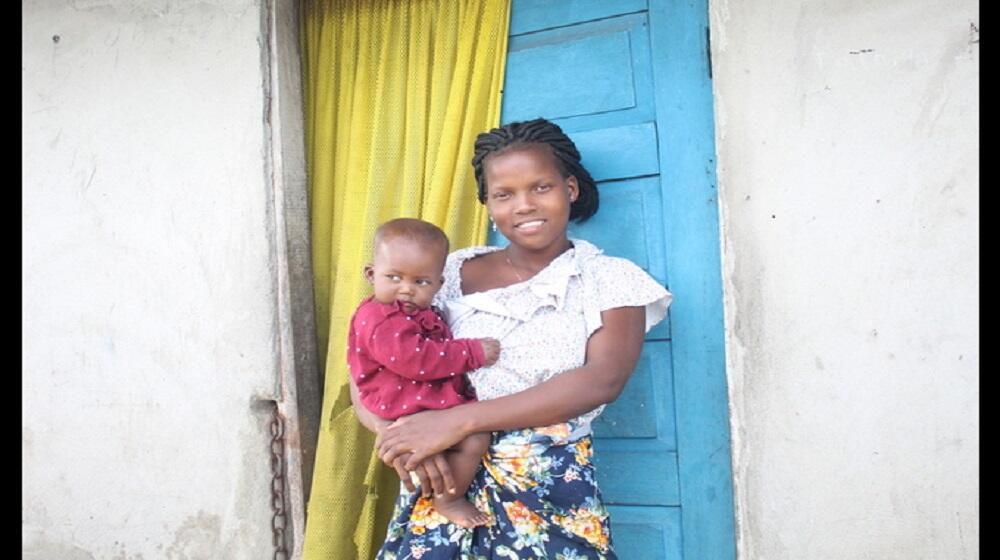Sofala, Mozambique - Eulina João, 19, became a mother for the first time when she was 17. Without crucial knowledge about her sexual and reproductive rights, Eulina feels that her life could have taken a different course with the knowledge she has today about family planning.
"My baby is nine months old. If two years ago I had known what I know today, all the information that this project has brought us through the activists, I could have made different decisions and planned my family life differently," she shares.
The project Eulina refers to is Improving Reproductive, Maternal and Adolescent Health, which is being implemented in four districts of the Sofala Province (Beira, Dondo, Nhamatanda and Búzi). Led by the Government of Mozambique, with technical support from UNFPA and funding from the Korea International Cooperation Agency (KOICA), the project aims to change the data that shows that currently only 15 per cent of the population in Sofala province uses contraceptives, and where the maternal mortality rate is 355 per 100,000 live births (2017 Census).
"Four months ago, I had access to a contraceptive implant. Now I feel that I can decide my future and focus on school," she says.
"I encouraged my daughter to use contraceptives" - guardians guaranteeing youth a healthy and safe future.
At the age of 15, Delfina Patrício had the support of her mother to use contraceptives. After receiving guidance on her sexual and reproductive rights from a community health activist, the girl went to see her mum.
"The activist spoke to me about my health, about family planning. I understood I had the right to sexual and reproductive health and wanted to share this information with my mum. I was pregnant and didn't know what to do," says Delfina.
Her mother, Deolinda, listened to her daughter with concern.
"My priority is her well-being. After listening to all the information she brought me about contraceptive methods, I encouraged my daughter to use them after having the baby. I see so many girls pregnant at such an early age. I wish I'd had access to information earlier; I could have guided my daughter sooner," Deolinda shares.
In Mozambique, more than half of births occur between the ages of 15 and 24. In general, four out of ten girls are married by the age of 17, with Sofala being one of the provinces in the country with the highest percentage of early marriages between the ages of 15 and 17.
Through the Improving Reproductive, Maternal and Adolescent Health project, community health activists promote door-to-door and community sensitisation sessions on family planning and sexual and reproductive rights. Aware of the challenges communities face where support for family planning is limited, activists like Manuel Manhoso consider vital guardians' support to guarantee a healthy future for boys and girls.
"It's incredibly encouraging when a mother, a father or guardian supports and encourages their daughters and sons to use contraceptives," comments activist Manuel. "Increasing demand for sexual and reproductive health services in health centres and mobile clinics is one of our main objectives. It's vital to see that our work is also impacting the country."
Thanks to funding from KOICA, the project organizes five mobile clinics each month in remote areas where accessing health services remains an immense challenge. These clinics cater to an average of 600 adolescent girls and young women, providing them with the essential care they need. Additionally, mentoring sessions are held once a week, involving 17 young women who offer guidance and support to 20 to 30 adolescents each.


